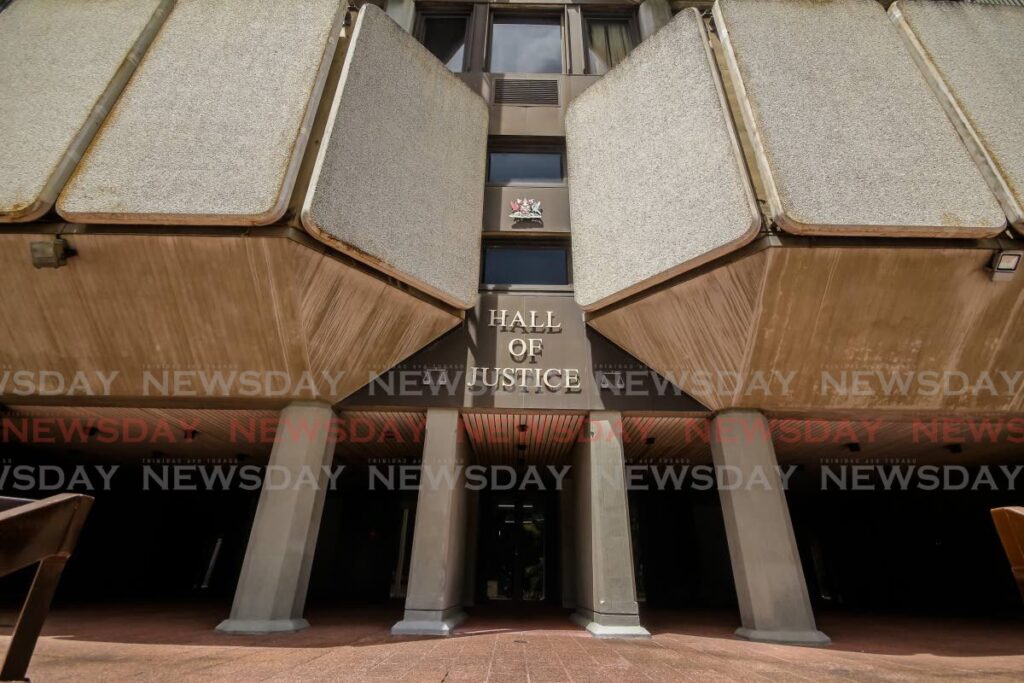Prison officer to get more $$ for State’s ‘misogynist, unjustifiable harassment’
 11 December 2024
11 December 2024


A prison officer who previously received over $3.5 million after a 15-year legal battle concerning her alleged abandonment of duty, will receive an additional $.1 million.
In a ruling on December 10, Justice Frank Seepersad condemned what he called a “vexatious attempt” to subject Favianna Gajadhar to further “unjustifiable harassment.”
The judgment followed a decision by the Commissioner of Prisons to initiate a fresh investigation into Gajadhar’s extended absences from duty in 2004 and 2005, despite prior court rulings in her favor.
Gajadhar, who suffered a back injury and later became pregnant during her absence, was previously reinstated after the court determined her termination violated her rights.
Seepersad criticised the commissioner’s actions as oppressive and damaging to the administration of justice, citing the protracted nature of Gajadhar’s fight for vindication.
>
Her initial $3.5 million award included compensation for lost salary and benefits, distress and lost promotional opportunities.
The dispute has gone on for nearly two decades "and she has been successful at each and every step of what has been a litigation marathon,” Seepersad acknowledged.
In October 2023, he held her rights had been violated and ordered compensation for the breaches.
The majority of the compensation represented the $2,821,744.54 in salary and benefits she would have received had she not been improperly terminated.
She also received $125,000 for the distress and inconvenience she suffered and $150,000 for her loss of the chance of being promoted during the period before she was eventually reinstated.
Her lawsuit alleged that after Seepersad’s ruling in 2023, she was told of a fresh investigation into her absence from duty for the two periods in 2004 and 2005.
It said she wrote to the commissioner calling for the investigation to be terminated, as it was “manifestly unfair and prejudicial” to her, since her memory would have faded over the last two decades.
Seepersad described the commissioner’s actions as “highly irregular, unfair, arbitrary, irrational.”
In quashing the decision and declaring that Gajadhar’s constitutional rights were infringed, Seepersad said the commissioner’s decision “instils in the court, the feeling that such a course does not accord with the tenets of good administration.”
>
He added, “There is no regulation under the Public Service Regulations which contemplates action (administrative, disciplinary or otherwise) over 20 years after the occurrence of an incident.
“In fact, the regulations contemplate timely investigations and set out a detailed procedure.”
He said it appeared Gajadhar was “the victim of entrenched misogynistic views and it appears that this new investigation is but another vexatious attempt to act oppressively and to subject her to yet another round of unjustifiable harassment.”
In deciding the matter, Seepersad said none of the issues raised in the new complaint about the questioned periods had been addressed in any of the other cases determined in Gajadhar’s favour. He said she was put in an “invidious position” of responding to allegations over matters she was unable to recall.
“The course which was engaged did not amount to fair play in action nor was it a process which accorded with the principles of natural justice.
“The proposed investigation when viewed against the previous litigation which unfolded and the positions advanced during the many said actions, was outrageous and defied logic...
“It is evident that the first defendant instituted an enquiry without a legitimate basis for doing so and he erred and exceeded the authority vested in him.
“This manner of conduct has to be condemned as this type of behaviour brings the administration of justice into disrepute and erodes public confidence in the rule of law.”
Seepersad reminded that “no power was absolute,” and said he would not condone the prison commissioner’s conduct. He said all power must be used in a "fair, just and reasonable manner for a lawful purpose," but the treatment of Gajadhar was neither contemplated nor authorised by law.
>
"The court is forced to conclude that the enquiry was likely an act of retaliation and revenge."
The State and its agents may not use their powers in an "arbitrary and malicious manner," he said, and Gajadhar's right to protection of the law had been violated.
“No citizen should be put through what she was put through.”
Anand Ramlogan, SC, Jayanti Lutchmedial-Ramdial, Kent Samlal, Natasha Bisram and Jared Jagroo represented Gajadhar.
Keisha Prosper, Candice Alexander and Adana Hosang represented the Commissioner of Prisons and the Attorney General.

